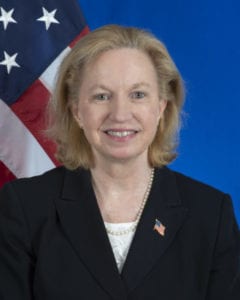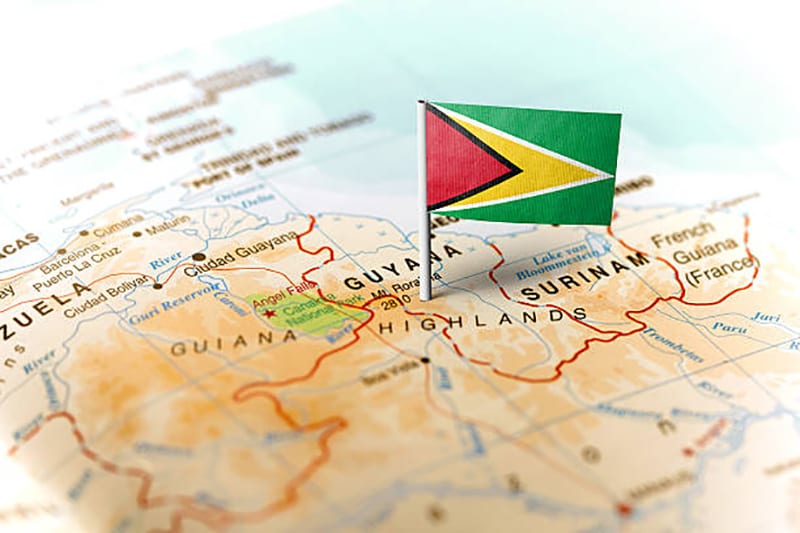Guyana is on a transformational journey as a result of the benefits of the oil and gas industry, and the United States’ Ambassador to Guyana, Sarah Ann-Lynch says that key to the country’s balanced growth is the creation of a level playing field for foreign investors in an atmosphere of transparency. The diplomat further stated that the U.S is willing to work with Guyana for the creation of such an environment.

Speaking during a public forum earlier this week, Ambassador Lynch highlighted noted that the sheer number of oil equivalent barrels discovered offshore Guyana– now 9 billion and still rising–is staggering. “Guyana is on track to becoming the second or third largest oil producer in the Western Hemisphere over the next 30 to 40 years. According to the Bank of Guyana, Guyana’s GDP grew by 43.5 percent in 2020, making it the fastest growing economy in the world and it’s projected to expand by 20.9 percent in 2021,” she stated.
“That means that Guyana is open for business,” the Ambassador declared.
She noted that there are many opportunities for the creation of a diversified economy and for economic transformation in Guyana. She said, “The government’s announced investments in infrastructure will help Guyana move more rapidly along this transformation belt but this transformation to balanced growth also requires the leadership of Government and the business community in creating a transparent and level playing field for foreign investors.”
The Ambassador stressed the importance of contract sanctity, as well as security to curb high crime rates and the influence of transnational criminal organisations. “These market risks need to be addressed along with a clear procurement process,” she emphasised, adding that, “The United States is happy to partner with Guyana to usher in these essential changes.”
Last September, the then U.S Secretary of State, Michael Pompeo and Guyana’s Foreign Affairs Minister, Hugh Todd signed a Growth in the Americas Memorandum of Understanding (MoU) that was geared towards the improvement of Guyana’s investment-enabling environment. That MoU also furthered cooperation between Guyana and the United States in addressing the various policy, legal, regulatory, institutional, and market barriers that are impeding the flow of private capital solutions from the U.S into Guyana.
The pact also saw Guyana agreeing to increase U.S. private sector awareness of “strategic energy and other infrastructure projects in Guyana and exploring potential financial support from the U.S International Development Finance Corporation, the Export-Import Bank of the United States and the U.S Trade and Development Agency to facilitate private sector participation and investment in such projects.”



